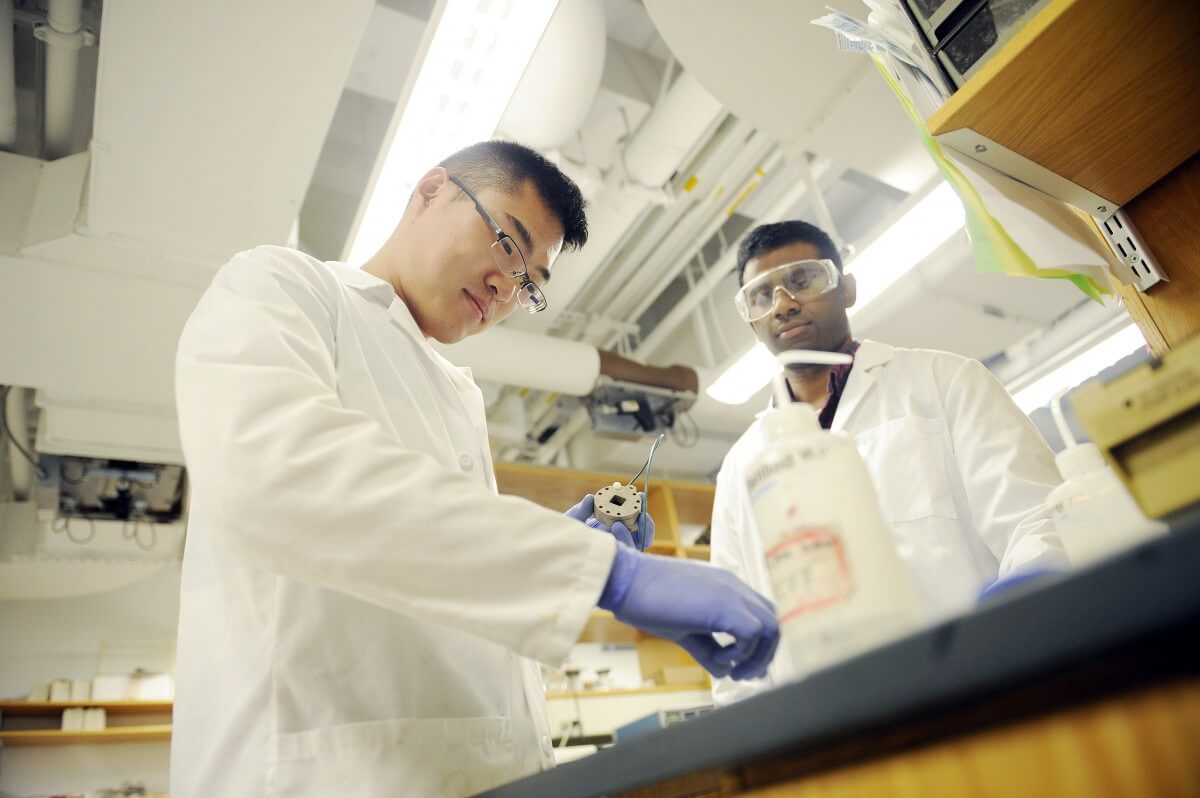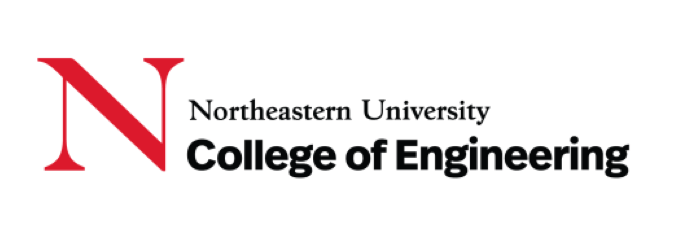We live in an age rife with digitization and complex technical challenge. Most of these pressing problems are dealt with by qualified engineers; those being called upon to drive innovation to new heights and provide next-generation technology solutions that not only keep pace, but are at the forefront of changing needs across industry sectors to advance society.
“As we look at innovation success for business and industry sectors, one of the key factors we see is players in the workforce who are crossing over disciplines,” said Tristan Johnson, Assistant Dean of Multidisciplinary Graduate Education & Digital Learning at Northeastern University’s College of Engineering.
“From engineering to computer science, and business, policy and decision-making; one thing that’s key for success is this notion of integration,” he adds. “Businesses that are able to integrate are going to have a competitive advantage. So, let’s bring this notion of integration together to also give students this competitive edge. Then they can say, ‘I’m ready, I’m prepared’ and walk out into the world and really make a difference.”
Top-ranked and located in the heart of Boston — the United States’ hub for high-tech, biotech and academia — the Graduate School of Engineering at Northeastern University designs more than 25 Master of Science and PhD degrees to meet the needs of the ever-changing industry, with program innovation a key feature of each course, such as including project-based learning and industry experience. Some programs have been specifically structured to give students without an undergraduate degree in engineering the opportunity to earn an engineering master’s degree as part of the standard curriculum or with additional preparation courses.
In the heart of Boston

As the tenth largest metropolitan area in the U.S., Boston is known to have one of the highest concentrations of engineers and it is also an international capital of medicine and technology innovation. More than 350,000 college students pursue their college degrees in Boston annually from all over the world. It is also one of the most historic cities in the United States and rich in the arts and music.
Engineering degrees crossing multiple disciplinary boundaries
The multidisciplinary graduate engineering Master of Science (MS) programs at Northeastern — including an MS in Information Systems, Engineering Management, Energy Systems, Internet of Things, Software Design for computer systems, Telecommunication Networks, Sustainable Building Systems, and more — integrate engineering with technology, business, and at times policy too. Here, the curriculum is focused on the application of knowledge and skills to business and industrial settings.
“The three pillars of energy systems are technology, business, and policy. There were very few universities that actually provided the opportunity to study them together. I feel Northeastern is one of the very few places that can make that happen,” commented Rishabh Sardana, master’s in Energy Systems student.
“I could not be more impressed with the classes of the [Telecommunication Networks] program. The professors are not just theorists in their respective fields, but have decades of work experience which has helped shaped the telecommunications industry to what it is today. This experience brings the classes to life and allows students to see beyond the minutia of the technology so they can piece together the entire telecom ecosystem,” explains Northeastern Engineering Alumnus Arthur Gjika, senior sales trainer at Verizon Wireless.
“A couple of our students competed in a hackathon with 1,200 participants, all about Blockchain,” said Johnson. “They won first prize through the application of Blockchain in the Healthcare sector — that’s what makes us different, that’s what sets us apart. The application of innovation is what we’re talking about here. These programs are creating innovation to tackle social technical issues.”
Opportunity for paid industry experience
But Northeastern’s engineering vision doesn’t stop there. The College of Engineering is actually one of only a few to offer a graduate-level Cooperative Education (Co-op) program. This cutting-edge syllabus gives hundreds of students the chance to gain up to eight months of paid industrial workplace experience as part of their degree. The master’s programs seamlessly blend academic and corporate experience, empowering students by enhancing their professional capabilities, thereby facilitating career transformation. Co-op students, including international applicants on an F-1 visa, have the chance to earn an average of US$25 per hour to help finance their education.
More than 700 organizations from around the world have opted to participate in the Northeastern’s College of Engineering co-op program, including industry juggernauts such as Tesla, NASA, Amazon, Google, and Apple. Last year, the program placed almost 800 graduate students, all of whom came equipped with sought-after technical expertise.
“I am doing my co-op at New York Life Insurance as a cloud engineer, and my work revolves around building and deploying efficient applications on the Amazon Web Services cloud,” says Randeep Guha, MS Information Systems student.
Parth Garva, also an MS Information Systems student, has been on co-op at Fidelity Investments, and has already secured a job with them upon graduation. “I’ll be working on Fidelity’s cryptocurrency initiative…This is an emerging field that brings topics like cryptography and math together with computer science.”
Top-tier research institution
Multidisciplinary learning and research is a staple of Northeastern, which is in the top-tier for Research activity among U.S. colleges and universities, according to the Carnegie Classification of Institutions of Higher Education. Here students can participate in groundbreaking convergent research with over 170 tenured and tenure track accomplished Faculty in 13 state-of-the-art research centers funded with eight federal agencies. The institution focuses in the areas of health, sustainability, and security, as well as in cross-cutting emerging areas such as wireless communication technologies and robotics. Degrees are continually being added such as the new MS in Engineering and Public Policy, Environmental Engineering, and Data Analytics to stay ahead of the changing needs in industry.
As for Garva, he reflects, “I am very excited about the future and can honestly say that the decision to enroll at Northeastern’s College of Engineering has changed my life.”
Follow Northeastern University’s College of Engineering on Facebook, Instagram, Twitter, LinkedIn and Weibo
Liked this? Then you’ll love these…
Royal Holloway University: Engineering education for successful careers
Engineering your success: Schools that blend Engineering with enterprise











